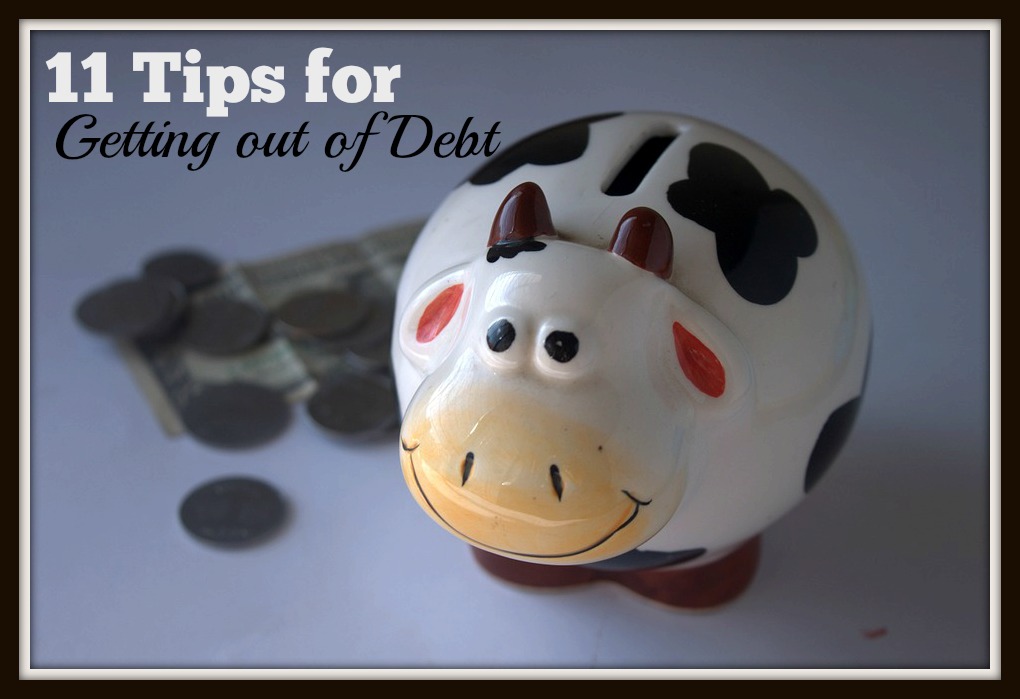As far as I know, there isn’t any get-rich-quick scheme just waiting around to make you debt free. As unfortunate as that is, plenty of hustle and hard work will eventually help you get to your goal. It might take months, it could take years, but the work is worth it in order to be able to focus on the present and the future instead of your old bills!
It’s important to remember that a lot of people struggle with debt and you aren’t alone— in 2015, 8 out of 10 Americans said that they were in some sort of debt, and 38% of them had credit card debt. There isn’t any reason to be embarrassed, just get to work!
Here are 11 tips that can help you get out of debt:
1) Make an up-to-date budget, then adjust.
I’m sure that most of you have a budget in place, but I want to reiterate how important it is. A budget is the easiest way to know exactly where all of your money should be going.
Don’t leave anything out of your budget; if anything over budget DO NOT under budget. I always recommend looking at a few months of bank statements to confirm that you’ve got everything! It goes without saying that if your expenses exceed your income, you’ll have to make cuts. You’re gonna need a few extra dollars to start putting a dent in your debt!
2) Boost your income
If there aren’t any expenses to be cut and you find yourself at a standstill, you might consider searching for a better paying job. If that isn’t an option, try to supplement your income. This will spread you a little bit thinner than you’re used to, but it won’t have to be forever. Plus, your alternative is remaining stagnant with your debt. This article has some good ideas for boosting your income.
3) What is your debt ratio, anyway?
This was always the scariest part for me… But, eventually, you’ve got to face the truth and figure just how bad your debt is. So add everything up— credit cards, student loans, etc, and divide that by your income.
If your salary is $60,000 for the year and you’re sitting on $20,000 in debt, the ratio is .33. Anything under .5 is not the end of the world, and if you creep up to 1.5 – 2 you’ve got a lot more work to do. Regardless, these tips will help you get that ratio down.
4) For the love of all things good, STOP CHARGING!
Figuring out your debt ratio can help highlight spending patterns. You obviously can’t help things like hospital bills that sneak up on you, but I’m mostly talking about credit cards here. The biggest problems with credit cards is that people do not use them for emergencies, but rather to support themselves in living a life outside of their means. So, just stop charging!
5) Use raises and bonuses
If you’re following your budget like you should be, then any raises or bonuses are great news for your debt! Automatically put any additional funds towards paying debt off.
6) Transfer balances if possible
A lot of credit card companies have specials with 0% interest for limited times. So, with a little research and a lot of good timing, you could save quite a bit of money by transferring the balance of a high-interest card to a zero-interest card. You can find tips for completing a balance transfer here.
7) Say goodbye to the minimum payment
This one is self explanatory. The minimum payment is literally put in place so that the person in charge of your loan can maximize profit. Even though it’s difficult, you should always to try to pay more than the minimum— don’t let them take all of your money!
8) Follow the debt snowball (strategy 1)
There are a couple of different strategies you can use to pay off your debt, and this is the first. Start with the smallest debt and pay as much as you can on it, while trying to keep up with the minimum payments of your other debts. This should keep your motivations high, and you’ll be able to cross some debts off your list.
9) Figure out the interest (strategy 2)
Rank your debts from high interest to low interest. The highest interest is costing you the most money, so why not start there? Don’t forget to continue minimum payments on your other loans, though!
10) Don’t abandon your emergency fund
Sickness, car repairs, and unexpected unemployment are all things that could put a damper on paying off debts. You should try to keep a rainy day fund (at least $1,000 but ideally enough to live for 3 months) so that any curve balls won’t interrupt your process!
11) Remind yourself why you want this
Keep your goals in the back of your mind. Reminding yourself why you are working so hard to be debt free will help you stay focused and motivated. You might even consider a small reward for yourself each time you reach a milestone!
Getting out of debt is much easier said than done, but with these 11 tips you should be able to start making big moves in the right direction!
What strategies have you used to get out of debt, or cut down on expenses? Share with me in the comments below!





